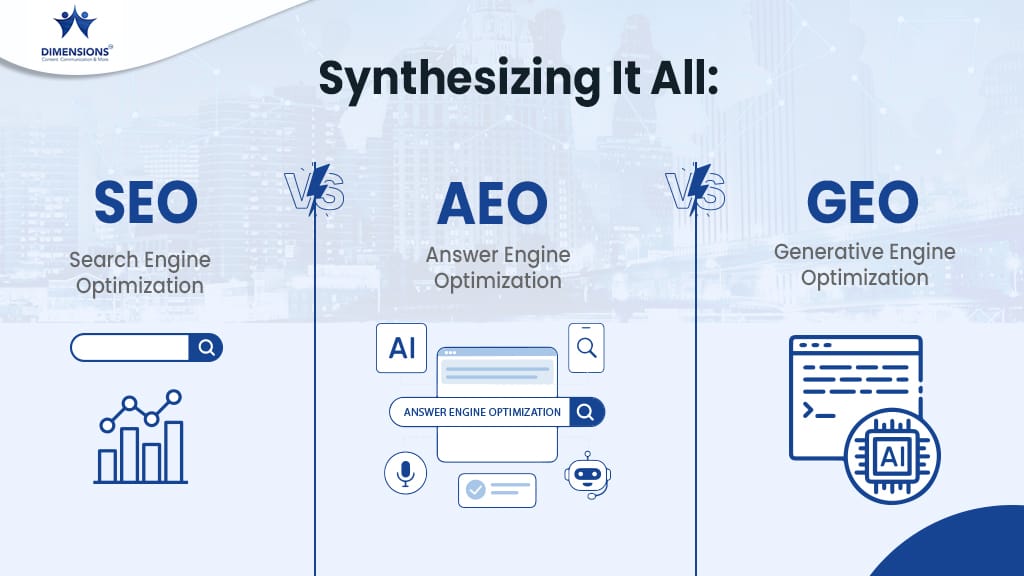SEO Writing Is Not Dead
Every few years, voices from distant corners of the marketing world whisper that SEO is dying. But with an estimated value of over 70 billion dollars, SEO is not dead and isn’t going anywhere soon. It will continue to evolve and thrive. However, SEOs, along with the companies that rely on them, will have to adapt. Here’s why.
SEO Requires More: SEO is not easy. Sites could literally type hundreds of relevant keywords, wrap them in white text, and place them behind certain pages. It would be the finest example of keyword stuffing and cloaking. The SEO traffic was sure to follow. Not anymore!
Nowadays, you have to produce quality content your audience wants to read from start to finish. You must create a fast site that loads in less than three seconds. You have to focus on content and technical SEO, write good title tags and meta, design a cohesive page layout, update your XML sitemaps, and ensure Google can exhibit your content as and when the customer needs it.
Today SEO requires extensive and meticulous work. It will not work if you are not ready to get into the weeds and provide the best possible experience for your users and Googlebot.
SEO is Evolving: Whether you started in content or technical SEO, it is likely more evolved now than when you first entered the game. What worked before often does not work today. So yes, SEO of yester years might be no more, but modern, evolved SEO is alive and kicking. To succeed in content SEO, you must provide a sensible page layout with logical headers, body content, hyperlinks, images, videos, and transitions. Those without a writing background or dedicated content teams may find this unintuitive. But that’s the name of the game today.
On the technical side, SEO was about updated XML sitemaps, robots.txt files, and HTML. Today, SEO must grasp all topics: teamwork, site architecture, client-side rendering, JavaScript, dynamic rendering, pre-render, largest contentful paint, first input delay, and cumulative layout shift.
Whether you came up in the content or the technical ranks, there are high chances that you’ve had to learn a few new aspects of the modern web that initially seem confusing. With education and real-world practice, the most successful SEO practitioners learn to master these once-confusing strategies and implement them as intended.
Change is The Only Constant: No later than 2005, websites could get away with black-hat SEO tactics. These scammy and Googlebot-focused tasks never had the user in mind and just tried to trick the system. Such black-hat tactics included keyword stuffing (shoving as many keywords on the page as possible), cloaking (showing Googlebot one version of the content and the user a different one), buying links (paying sites to link back to you), and more.
In the early 2000s, all these tactics worked. Fortunately, Google upgraded, tightening its standards. Not only will these no longer help you drive more organic traffic, but they could bring on a Google penalty, which will vastly decrease your traffic until all is remedied.
Nowadays, white-hat tactics such as delivering the best user experience, answering users’ questions, creating a fast website, and providing a sound site architecture are all the top SEO trends and the quickest way to succeed in SEO.
The Focus Is On The Content
Currently, more emphasis is given to the message and the content rather than the keywords. Here’s why?
Google has been tweaking the SEO content world for quite some time now. They make changes quite often, so it is the job of SEO writers to keep up. But, if you want to know, the recent stricter focus on good content is mainly due to the following factors:
Too much keyword stuffing on the part of web owners in the past
Too many “traded” but irrelevant links from one site to another to gain traffic.
The use of “black hat” methods to trick search engines into believing a site is of high value when it is high in spam and subversive techniques
Lack of direction or quality in written content for websites and blogs
Too many ads or irrelevant ads for the purpose of monetisation only
Hidden identities of authors in blog posts through guest blogging, lowering the credibility of a present author’s credentials
At Dimensions, our content writing experts ensure that all our articles are optimised for SEO. Through our SEO content writing services, we ensure that SEO-optimised articles don’t sound robotic. That’s one of our key USPs. Retaining the human side of SEO articles is the real challenge. And Dimensions is up for it.





